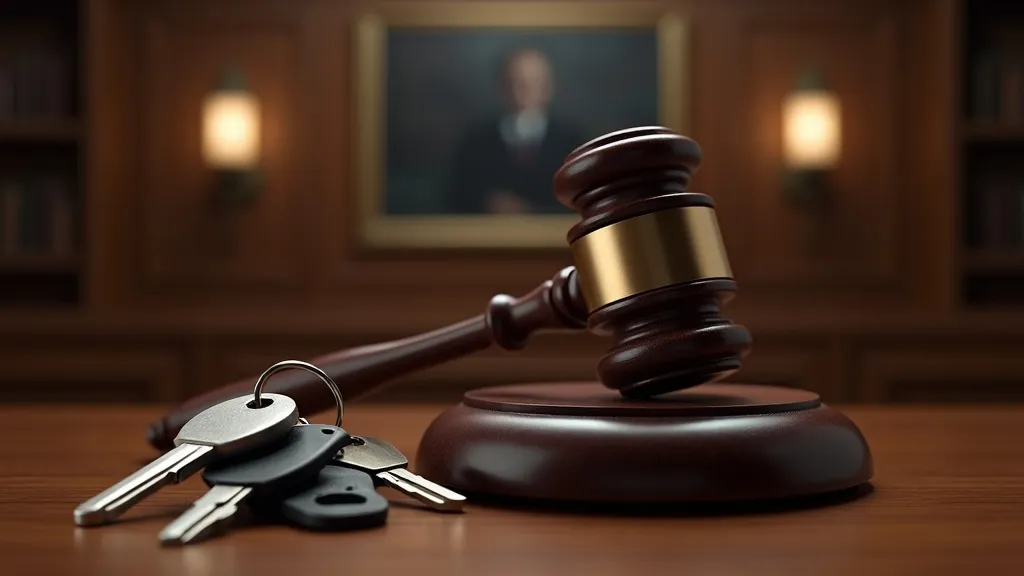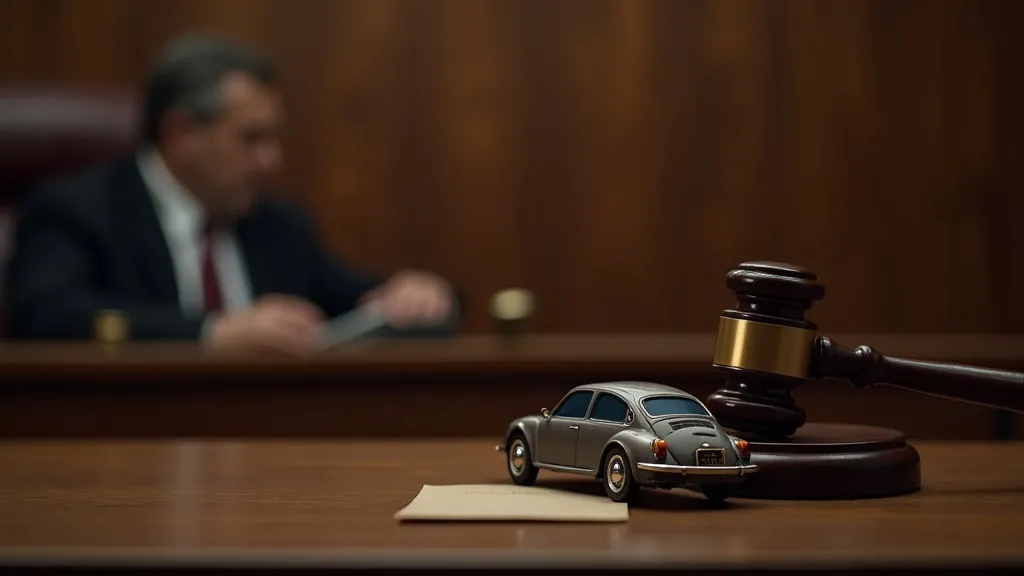Understanding Wrongful Repossession
This guide explores the complexities of wrongful repossession, an area of concern where property is taken back by a lender without legal authority. Instances of wrongful repossession can lead to significant emotional and financial distress for individuals. The article provides a comprehensive analysis of the legal framework, rights of consumers, and steps to address potential wrongful actions in repossession scenarios.

Introduction to Wrongful Repossession
Wrongful repossession occurs when a lender seizes property from a borrower without the legal right to do so. This action often involves vehicles but can extend to other financed items such as electronics, furniture, and equipment. The implications of wrongful repossession can be significant, leading to financial loss, emotional distress, and a damaged credit score. Understanding the intricacies of wrongful repossession is crucial for consumers to protect their rights and seek redress in cases where their property is improperly taken. With a thorough grasp of the legal framework, consumer rights, and steps to address grievances, individuals can navigate the complexities of repossession more effectively.
Legal Framework Surrounding Repossession
The legal landscape of repossession is dictated by both federal and state laws, which provide a structured protocol that lenders must follow. Central to these regulations is the requirement that lenders must have a valid and enforceable security interest in the property. This means that the lender must be able to demonstrate a legal claim to the property based on the terms of the loan agreement. Furthermore, the process typically involves providing the borrower with default notices and an opportunity to rectify their situation before repossession can occur. The Uniform Commercial Code (UCC) is a critical framework in the United States that outlines the procedure for repossession, emphasizing the requirement for lenders to act in good faith and maintain peace during the repossession process.
In addition to the UCC, various state laws may impose further restrictions on repossession practices. For instance, some states may require lenders to obtain a court order before repossessing certain types of property, while others may mandate that lenders provide more extensive notice to borrowers. Understanding the specific laws applicable in one’s state is essential for consumers who may be at risk of wrongful repossession. Moreover, in certain situations, federal laws, such as the Fair Debt Collection Practices Act (FDCPA), may also apply, providing additional protections against abusive practices by lenders or collection agencies.
The Consumer's Rights
Consumers have specific rights that protect them from improper repossession. These include the right to receive adequate notice before repossession, the right to retrieve personal belongings from the repossessed property, and the right to be free from breaches of peace during the repossession process. Understanding these rights is vital for individuals to effectively challenge any wrongful actions.
One of the fundamental rights of consumers is the right to receive written notice of default. This notice typically outlines the amount owed, the due date, and any potential penalties for non-payment. In many states, lenders are also required to provide a grace period during which the borrower can make the necessary payment to avoid repossession. Additionally, consumers have the right to reclaim personal items from a repossessed vehicle or property. This right is particularly important as it ensures that individuals can recover essential belongings such as clothing, personal documents, and other vital items.
Another critical consumer right is protection against unlawful or aggressive repossession practices. The law prohibits lenders from using force, threats, or intimidation to recover property. If a lender engages in such behavior, they may be liable for damages, and consumers can take legal action against them. Furthermore, consumers have the right to dispute the legitimacy of the repossession, and they can seek legal recourse to challenge the lender's actions if they believe their rights have been violated.
Identifying Wrongful Repossession
Determining whether a repossession is wrongful involves examining the legality of the lender's actions. Key indicators of wrongful repossession include lack of proper notification, seizing property despite payment arrangements, or using force or threats during the process. Borrowers who suspect wrongful repossession should document all interactions with the lender and seek legal counsel to assess their situation.
One significant red flag for wrongful repossession is if the lender fails to provide adequate notice of default or continues to repossess despite the borrower having made an arrangement to catch up on payments. For instance, if a borrower has communicated with the lender about making a partial payment or has been granted an extension, and the lender still proceeds with repossession, this may constitute wrongful repossession.
Moreover, if the repossession occurs outside of the legal time frame stipulated in the loan agreement or state laws, it may be deemed wrongful. The use of aggressive tactics, such as physical confrontation or threats of violence, also qualifies as a wrongful repossession. Borrowers should be vigilant and take immediate action if they notice any of these warning signs.
Steps to Address Wrongful Repossession
Addressing wrongful repossession requires a methodical approach. Initially, consumers should gather all related documentation, including loan agreements, payment records, and any correspondence with the lender. Engaging with a legal expert can provide guidance on the validity of the repossession and help in filing a complaint with the appropriate consumer protection agency or pursuing legal action if necessary.
Once documentation is collected, the next step involves contacting the lender to dispute the repossession. It is essential to communicate clearly and assertively, outlining the reasons for the dispute and referencing specific contractual obligations or legal requirements that support the borrower's claim. In cases where the lender is unresponsive or dismissive, it may be necessary to escalate the matter to a higher authority within the company.
If the dispute cannot be resolved through direct communication, consumers should consider filing a formal complaint with relevant consumer protection agencies, such as the Consumer Financial Protection Bureau (CFPB) or the Better Business Bureau (BBB). These organizations can assist in mediating disputes and may take action against lenders who violate consumer rights.
In some instances, legal action may be the most effective way to address wrongful repossession. This could involve filing a lawsuit against the lender for damages incurred due to the repossession, including emotional distress and financial loss. Legal counsel can help navigate the litigation process and ensure that the borrower's rights are adequately represented in court.
| Step | Description |
|---|---|
| Document Collection | Gather all relevant paperwork related to the loan and repossession. |
| Legal Consultation | Seek advice from a lawyer to evaluate the repossession's legality. |
| Filing Complaints | Submit a complaint to consumer protection agencies if rights are violated. |
| Pursuing Legal Action | If necessary, initiate legal proceedings to challenge the repossession. |
Preventive Measures
To prevent wrongful repossession, consumers should maintain clear communication with their lender, understand their loan agreement terms thoroughly, and keep records of all payments. Staying informed about their rights and any changes in their financial obligations can also mitigate the risk of wrongful actions by lenders.
One effective strategy for preventing wrongful repossession is to establish a proactive payment plan. Consumers should prioritize their financial obligations and reach out to lenders at the first sign of trouble. If a borrower anticipates difficulty making a payment, they should communicate this to the lender and request possible accommodations, such as a temporary deferment or restructuring of loan terms.
Additionally, it is advisable to set reminders for payment due dates and to maintain a buffer in one’s budget for any unexpected expenses that may arise. This financial discipline can help ensure that payments are made on time, reducing the likelihood of default and subsequent repossession.
Another preventive measure includes regularly reviewing credit reports. Consumers are entitled to one free credit report annually from each of the major credit reporting agencies, and they should utilize this opportunity to check for any discrepancies or errors that could affect their credit standing. Addressing inaccuracies promptly can help avoid situations where lenders may act on misleading information.
FAQs
What constitutes wrongful repossession?
Wrongful repossession occurs when a lender seizes property without adhering to the legal requirements, such as failing to provide notice or violating consumer rights. It can also refer to situations where a lender repossesses a property after a borrower has made a valid payment arrangement or lacks a legal claim to the property.
Can I retrieve my belongings from a repossessed vehicle?
Yes, borrowers are entitled to retrieve personal items from a repossessed vehicle, and lenders must allow access to these belongings. This right is crucial, as it ensures that individuals can recover essential personal items that may have been left in the vehicle at the time of repossession.
What should I do if I believe my vehicle was wrongfully repossessed?
If you suspect wrongful repossession, gather all related documents, consult a legal expert, and consider filing a complaint with consumer protection agencies. Documenting every interaction with the lender will strengthen your case and provide a clear timeline of events.
How can I prevent wrongful repossession?
Maintaining open communication with your lender, understanding your loan terms, and keeping detailed payment records can help prevent wrongful repossession. Being proactive in managing financial obligations and staying informed about your rights is essential in safeguarding against potential issues.
What are the potential consequences of wrongful repossession for lenders?
Lenders who engage in wrongful repossession may face significant legal consequences, including lawsuits, financial damages, and regulatory penalties. Moreover, such actions can damage a lender's reputation, leading to a loss of consumer trust and potential business decline.
Understanding wrongful repossession is essential for safeguarding consumer rights and ensuring lenders comply with legal requirements. By staying informed and proactive, individuals can protect their property and seek justice in cases of improper lender actions. The complexities of repossession law can be daunting, but knowledge and vigilance are key to navigating these challenging situations successfully.
Conclusion
In conclusion, wrongful repossession is a serious issue that affects many consumers. The potential for significant financial and emotional impacts makes it imperative for individuals to understand their rights and the legal processes involved in repossession. By familiarizing themselves with the legal framework, recognizing their rights, and taking proactive steps to prevent and address wrongful repossession, consumers can greatly enhance their ability to protect their property and seek redress when necessary.
As the lending landscape continues to evolve, so too do the challenges associated with repossession. It is crucial for borrowers to stay informed about their rights, changes in legislation, and best practices for managing their financial obligations. By doing so, they can navigate the complexities of borrowing and mitigate the risks associated with potential repossession. In the end, empowerment through knowledge is the most effective tool consumers have in safeguarding their interests against wrongful repossession.
-
1

Explore Thrilling Adventures: Unveil the World's Very Exciting Travel Destinations
-
2

Unlock the Secrets to Maximize Your Kona SUV's Fuel Economy
-
3

Unlock the Highest Resale Profit: Expert Tips for Boosting Your Kona SUV's Value
-
4

Effortless Adaptation to Senior Apartment Living: Master the Transition with This Ultimate Strategy
-
5

Transform Your Senior Apartment into a Cozy and Charming Retreat: Personalized Touches to Make It Truly Home









